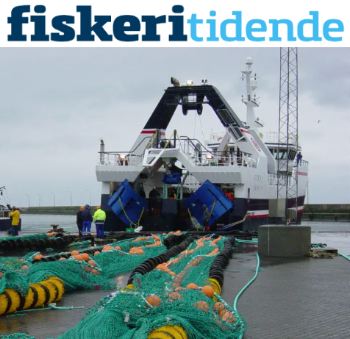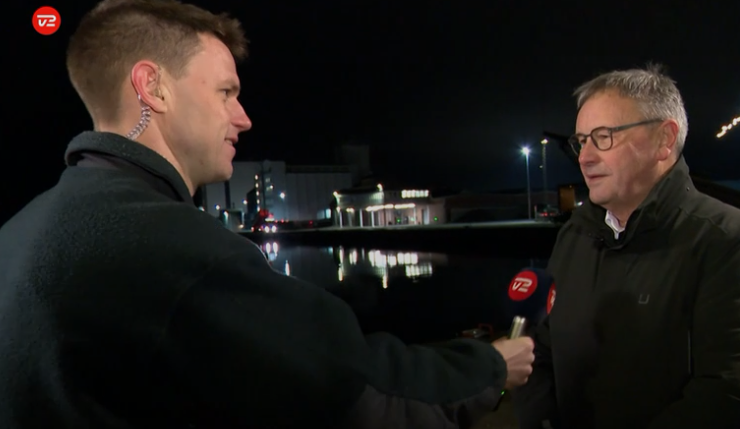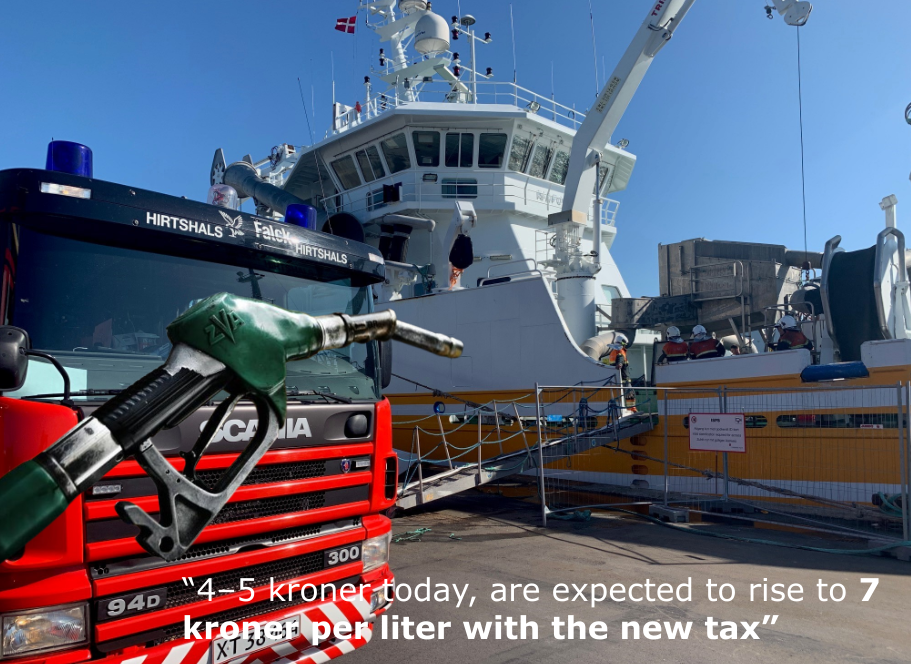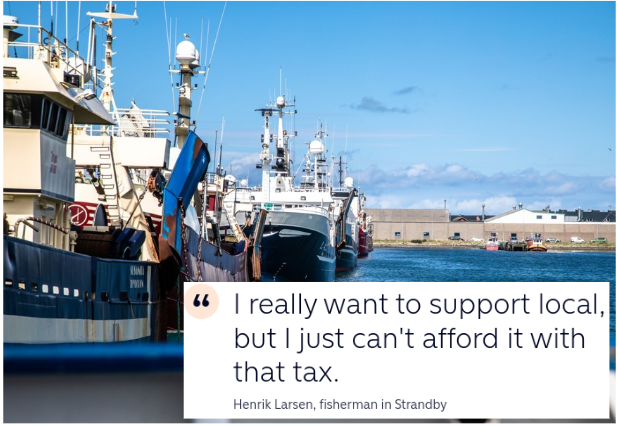|

Photo: Cosmos Trawl/Fiskeri Tidende
New CO2 Tax Poses Severe Threat to Danish Fisheries
 DENMARK
DENMARK
Friday, December 13, 2024, 02:00 (GMT + 9)
The impending CO2 tax is set to have devastating consequences for Danish fishing, warns Svend-Erik Andersen, chairman of the Danish Fisheries Association, in an interview with TV2.
The broadcaster highlighted the profound impact the tax could have on the fishing industry, with many stakeholders voicing serious concerns about its feasibility and timing, reports Svend Boye Thomsen of Fiskeri Tidende.

Svend-Erik Andersen, chairman of the Danish Fisheries Association, during the interview with TV2
Industry Under Pressure
An article titled "New CO2 Tax is Feared to Have Enormous Consequences" sheds light on the challenges fishermen face. Alfred Fisker Hansen, a fisherman from Thyborøn, shared his decision to sell his large consumer vessel in favor of a smaller one due to the looming tax burden.
“It’s heartbreaking. This wasn’t the plan when we built the boat. It’s a beautiful vessel, and letting it go feels like a blow to the soul,” Hansen told TV2. He is one of many Danish fishermen reconsidering their future as the industry grapples with this new financial strain.
The CO2 tax, set to take effect in the new year, will eventually require fishermen to pay 2.25 kroner per liter of fuel. Diesel prices, already inflated from 2 kroner per liter a few years ago to 4–5 kroner today, are expected to rise to 7 kroner per liter with the new tax.

Lack of Alternatives
While the tax is designed to encourage the adoption of greener fuels, the fishing industry lacks viable alternatives to diesel. The result, Andersen fears, will be catastrophic.
“The CO2 tax will simply suffocate Danish fishing,” Andersen said, urging the government to delay the tax until green fuel production becomes a reality. Without postponement, the economic sustainability of many fishing operations is at risk, with numerous businesses potentially running at a loss.

Ripple Effects Across the Industry
The Danish Fisheries Association (Danmarks Fiskeriforening) predicts the tax could reduce the fishing industry by nearly half, which would lead to fewer active fishermen, fewer catches, and diminished activity in Denmark’s fishing ports. This has raised alarm at Danish Ports, where much of the activity depends on the fishing trade.
Adding to the concern, foreign fishing vessels may avoid Danish ports due to the high refueling costs, opting instead for ports in countries without similar taxes. This would further reduce revenue for Denmark’s port infrastructure.

Calls for Government Action
Despite the urgent concerns voiced by the industry, Fisheries Minister Jacob Jensen has not granted interviews. In a written statement, he indicated that political negotiations on the future of fisheries will begin soon.
The Danish fishing industry continues to appeal for a delay in the tax’s implementation, arguing that the infrastructure and technology required for a green transition are not yet in place. Without immediate action, the tax could mark a turning point for Danish fishing, one that threatens its sustainability and legacy.
[email protected]
www.seafood.media
|



